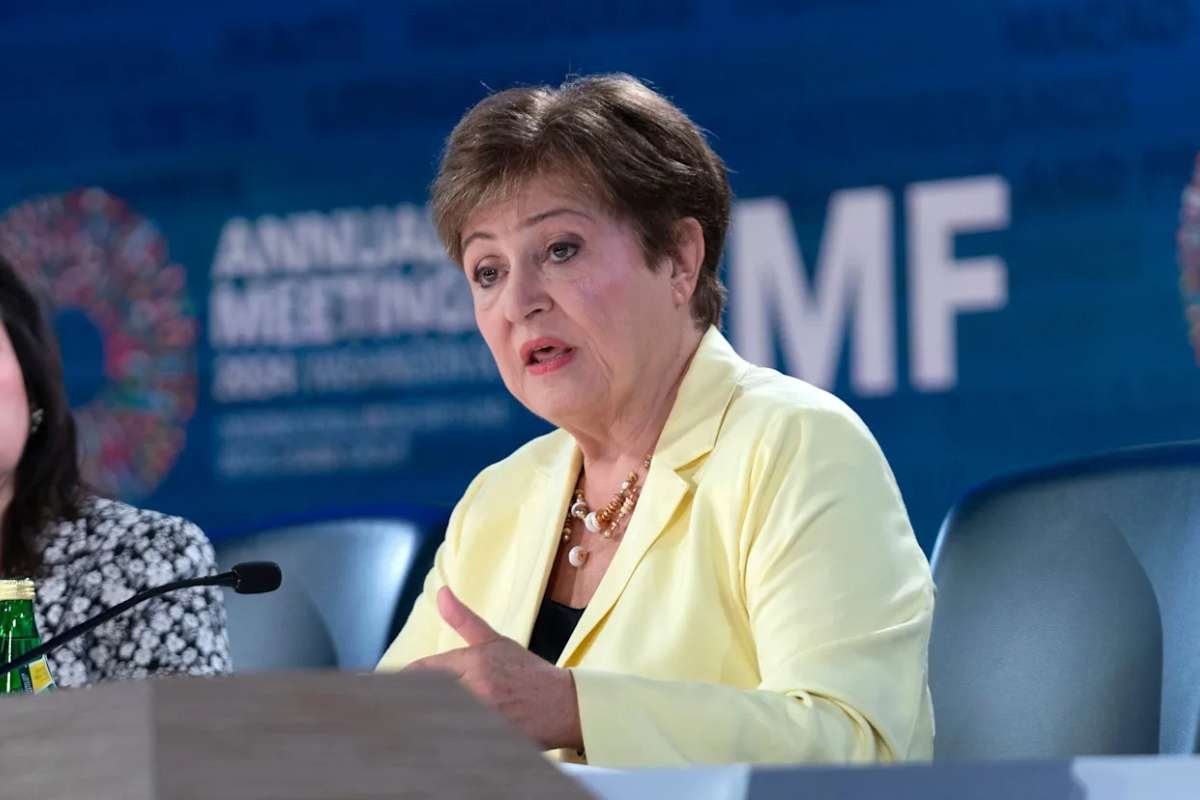Key Points:
- Global uncertainty is here to stay – markets may seem stable, but underlying risks remain high.
- Developing nations are most vulnerable – debt, inflation, and social unrest could trigger crises.
- Need for coordinated reforms – fiscal discipline, structural changes, and resilience investments are crucial.
As the International Monetary Fund (IMF) prepares for its annual meetings, Managing Director Kristalina Georgieva has issued a clear IMF economic warning: the global economy is entering an age of persistent instability. While global growth has proven resilient despite multiple shocks from inflation and supply chain disruptions to trade conflicts and geopolitical turmoil, Georgieva cautioned that this resilience remains fragile and untested.
The IMF’s latest outlook projects global GDP growth at around 3 percent in 2025, a slight dip from the previous year. The United States, once feared to be heading toward recession, has instead defied expectations, maintaining steady momentum despite higher interest rates and ongoing trade frictions. However, Georgieva noted that the current calm in markets could be misleading, with underlying vulnerabilities threatening to resurface, reinforcing her IMF economic warning.
She pointed to a series of warning signals across financial systems, gold prices soaring past $4,000 an ounce, record-high stock valuations, and speculative enthusiasm surrounding generative AI technologies. Drawing parallels with the dotcom boom, Georgieva warned that unchecked optimism could pave the way for a sharp correction. “We are witnessing resilience, but it is untested,” she said, urging policymakers not to mistake temporary stability for enduring strength.
Buckle Up: Uncertainty Is Here to Stay
In a candid address ahead of the IMF’s Washington meetings, Kristalina Georgieva declared that the global economy has entered an era where volatility is no longer an exception but a defining feature. “Buckle up,” she told policymakers. “Uncertainty is the new normal and it’s here to stay.”
She explained that the recent pickup in trade activity might be misleading. Many companies, Georgieva said, had accelerated exports early in the year to avoid potential tariff hikes, suggesting that the full economic impact of protectionism is yet to be felt. Rising trade barriers and regionalisation trends could, she warned, weaken global supply chains and dampen long-term growth.
Georgieva also called on major economies to confront internal imbalances. In the United States, she urged fiscal discipline to rein in a soaring national debt projected to rise by over $3 trillion in the coming decade. In China, she pressed for reforms aimed at boosting domestic consumption and reducing the nation’s high savings rate, in line with the IMF economic warning, to create a more balanced economic model.
Turning to Europe, Georgieva advocated bold reforms to enhance competitiveness and integration. She proposed the appointment of a “single market coordinator” to accelerate progress in the labour, energy, and financial sectors. Greater unity within the European Union, she said, could drive productivity, resilience, and innovation in the years ahead.
Emerging Economies Face the Hardest Hit
While advanced economies work to address their structural and fiscal vulnerabilities, Kristalina Georgieva warned that developing nations could bear the heaviest burden of global instability. A sudden tightening of financial conditions, she cautioned, could push fragile economies already grappling with debt, inflation, and weak institutions into crisis.
She also highlighted growing social unrest across developing nations, fuelled by inequality and limited access to economic opportunities, in line with the IMF economic warning. From Latin America to Southeast Asia, protests have become more frequent, reflecting frustration among younger populations seeking better prospects and political reform.
The IMF’s forthcoming global outlook is expected to incorporate these heightened risks. Georgieva’s overarching message is clear: the global economy must prepare for a prolonged period of unpredictability. Coordinated policymaking, structural reforms, and investment in resilience will be crucial to navigating the challenges ahead.
“The shocks of recent years, pandemic, war, inflation have taught us one lesson,” Georgieva concluded. “Uncertainty is not going away. Our strength will depend on how well we adapt, cooperate, and prepare for what comes next.”
Visit CIO Women Magazine For The Most Recent Information.









